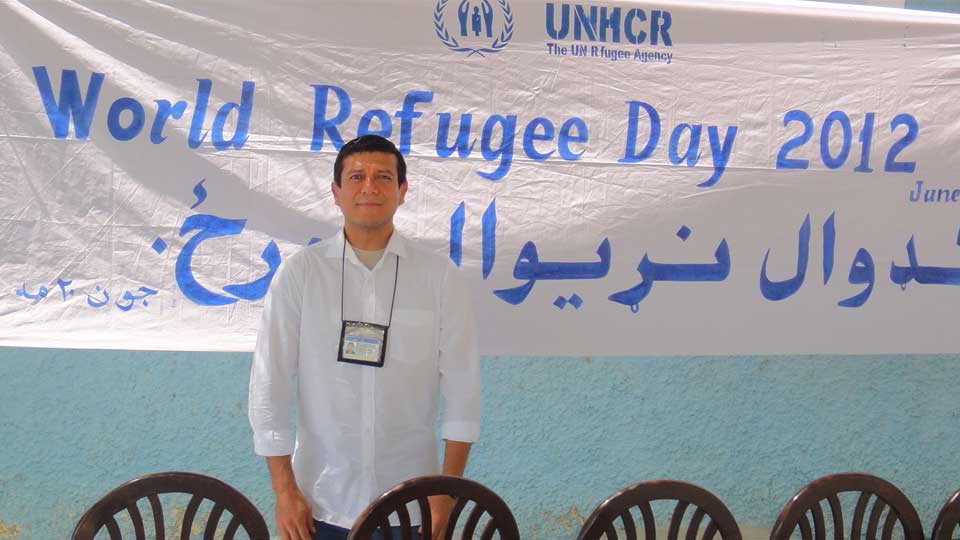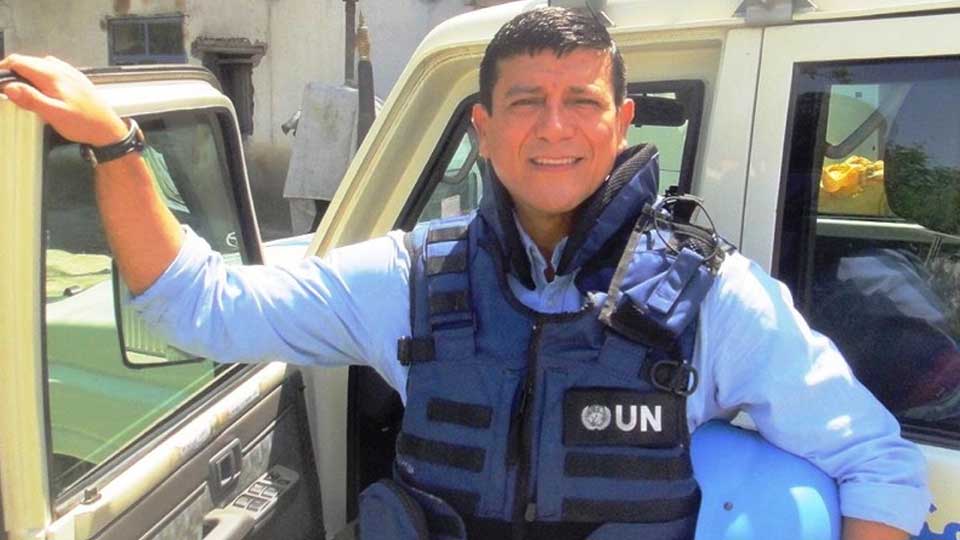Paramedicine a new calling for experienced UN worker

I guess being a mature-aged student and having the experience from the UN where [I was] confronted with difficult situations, you have no choice but to face the situation.
Ronnie Calitto
Bachelor of Paramedicine
With 15 years’ experience working for the United Nations, across five countries: Timor-Leste, Liberia, South Sudan, Afghanistan, and Somalia – Ronnie Calitto has deep expertise to bring to a new career, recently graduating with a Bachelor of Paramedicine from Victoria University (VU).
First response
Born in El Salvador, Ronnie always wanted to help people, playing games as a young boy where he ‘treated patients.’
When Ronnie finished his schooling he followed his ambition, training as a doctor at the Military Medical School of Mexico. However, with the worsening civil war in El Salvador, four years into his seven-year degree, Ronnie was forced to leave his course and move to Australia.
Unable to leverage his studies into a medical degree in Australia, Ronnie eventually landed his first role with the UN. During his postings, particularly in Somalia, he witnessed explosive attacks, conflict and medical emergencies, some of which resulted in casualties. Ronnie volunteered to be trained as trauma first responder so he could help attend the injured casualties, which re-ignited his passion in emergency medical response. He was diagnosed with post-traumatic stress disorder (PTSD), which led to his decision to leave his job with the UN. However, determined to extend his skills further he came back home to Melbourne and opted to pursue a career in paramedicine.
Returning to education
Returning to study in 2019, Ronnie completed a diploma-level course in paramedicine at VU. This gave him the skills to deliver non-emergency patient transport care as he completed placements with Ambulance Victoria and the Royal Flying Doctors Service.
With these new skills under his belt, Ronnie progressed into a Bachelor of Paramedicine at VU, a decision which pushed him professionally and personally.
“All my teachers were fantastic,” he said
“I did placements across the metro area – in Dandenong and Lyndhurst, Ferntree Gully, Laverton and rural areas, such as Kangaroo Flat in Bendigo.
My anxiety disorder has always been there, making my studies more challenging and difficult, but during placement, it actually helped me to be more precise, to stay more focused - it would make me extremely aware of what I was doing.
“All of the learning was in a real context: I was always asking the paramedics to let me do certain things – and they let me.
“I guess being a mature-aged student and having the experience from the UN where [I was] confronted with difficult situations, you have no choice but to face the situation and do what you are required to do to overcome the challenge. These experiences were useful during my placement. I had to keep reminding myself – ‘this is just a piece of cake, Ronnie, you’ve been through so much worse!’”
A new future in paramedicine
Ronnie is now working for an organisation that provides security, firefighting, and medical services to large companies in Queensland. He is committed to continually learning:
“I would like to be an air rescue paramedic, working in helicopters, performing vertical rescue, search and rescue (SAR), and aid people in difficult-to-access locations.
“I’ve even started some training in abseiling two years ago. I’m 59 this year and I am very aware of my capacities and physical abilities, so I’m trying to take care of my physical and mental health, but I don’t know whether I’ll be able to achieve my goal, but I’ll try.
I want to motivate others – especially my daughter! To keep studying, to achieve whatever she wants to achieve. It would be great to help others– give them some incentive, some motivation.

